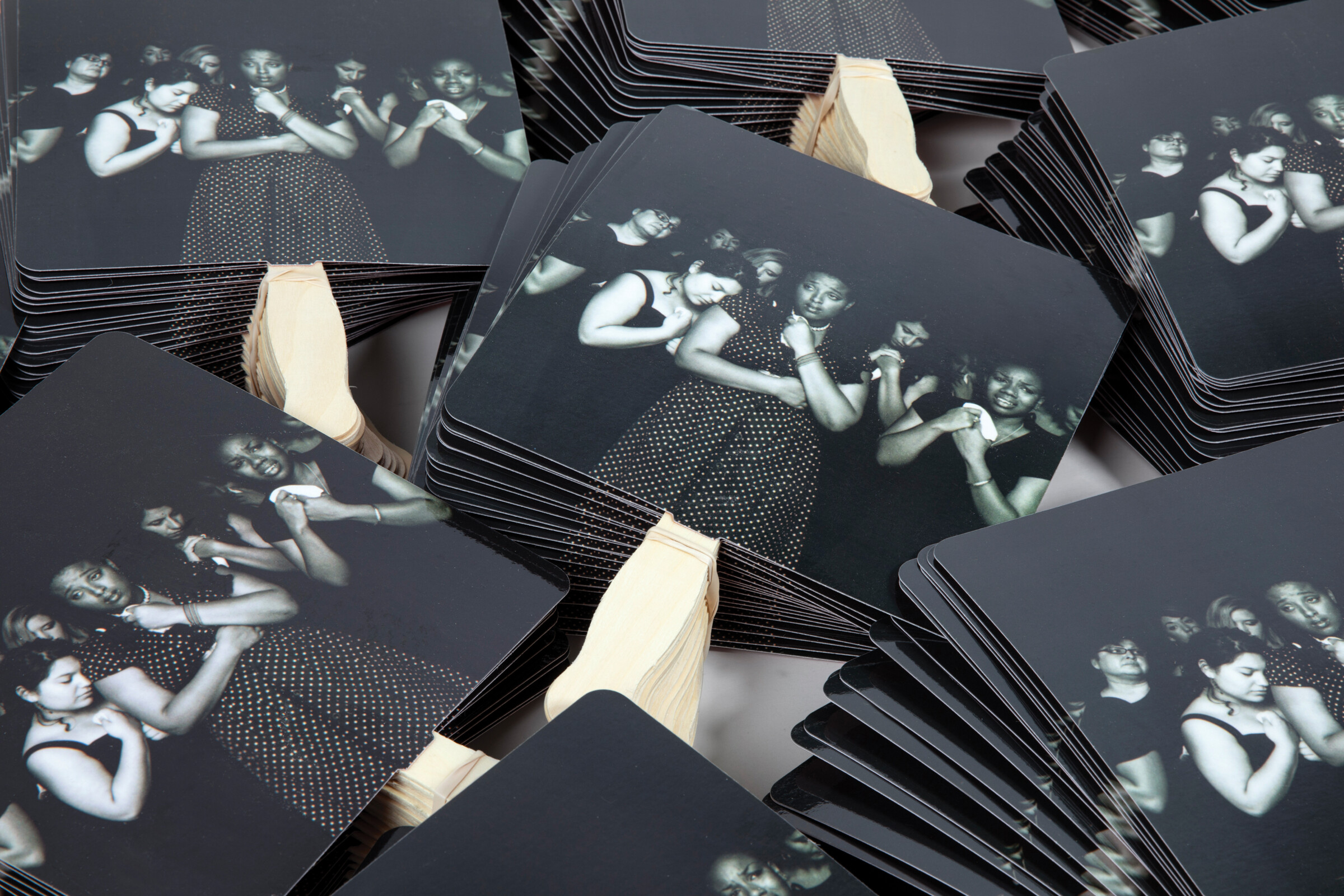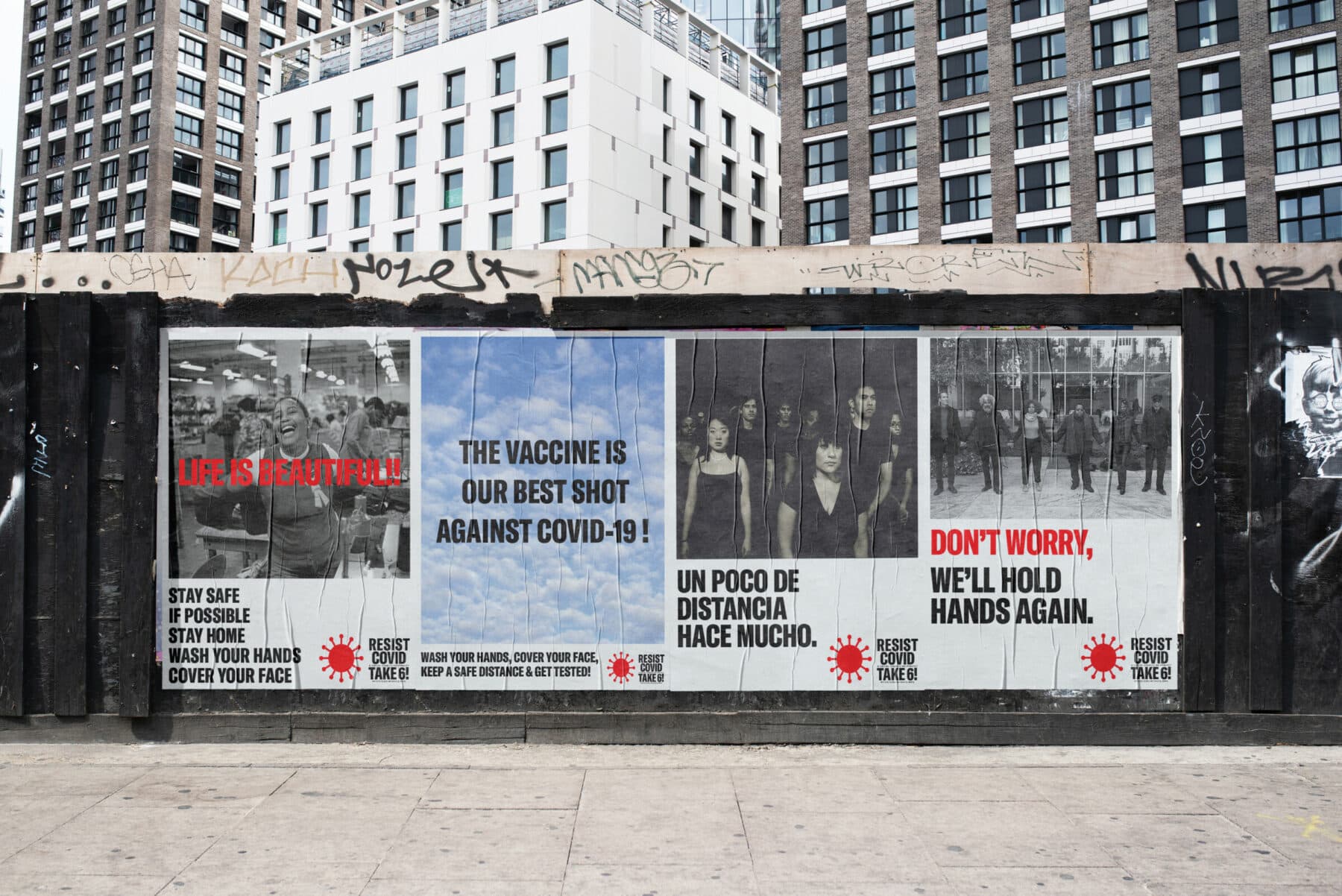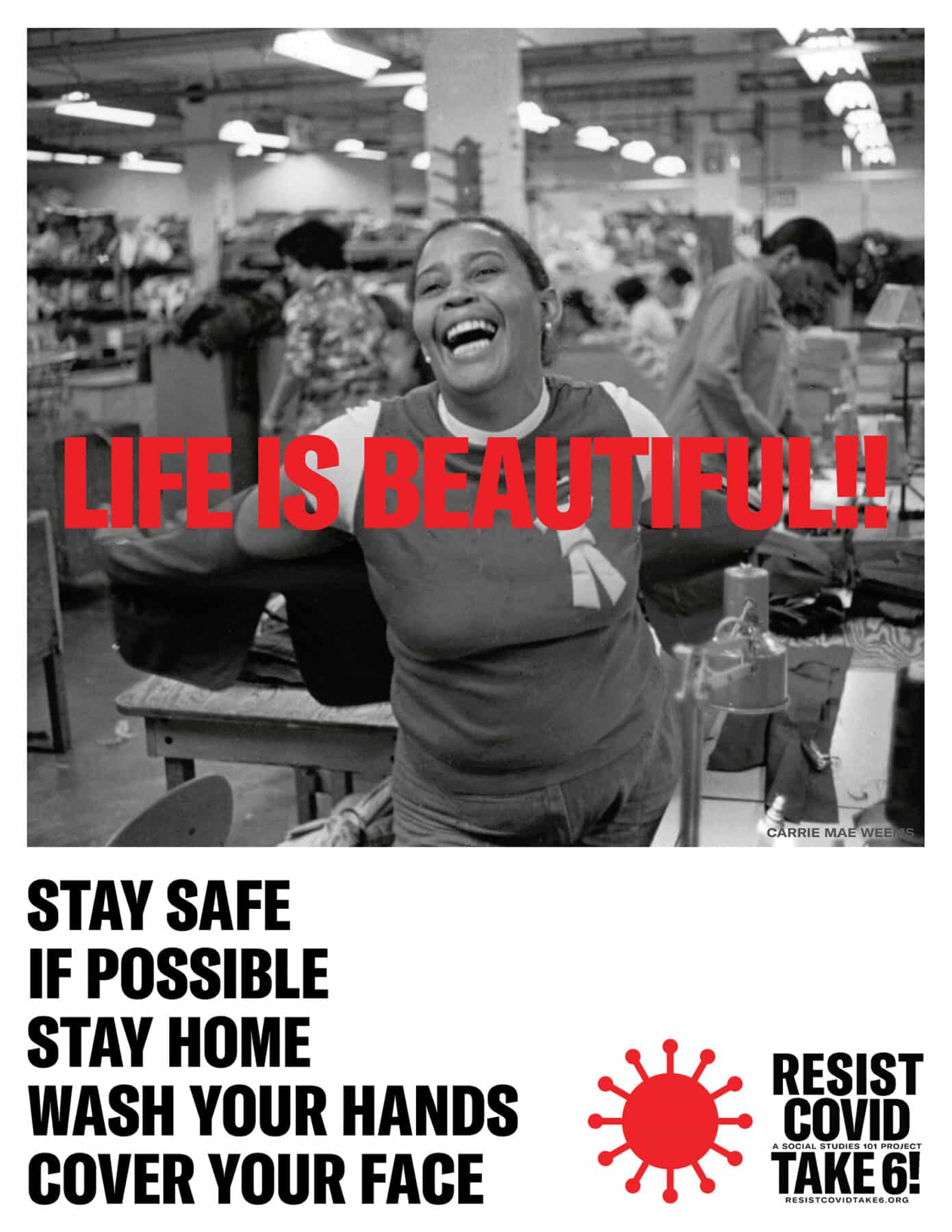Reflections on Carrie Mae Weems’s RESIST COVID | TAKE 6!
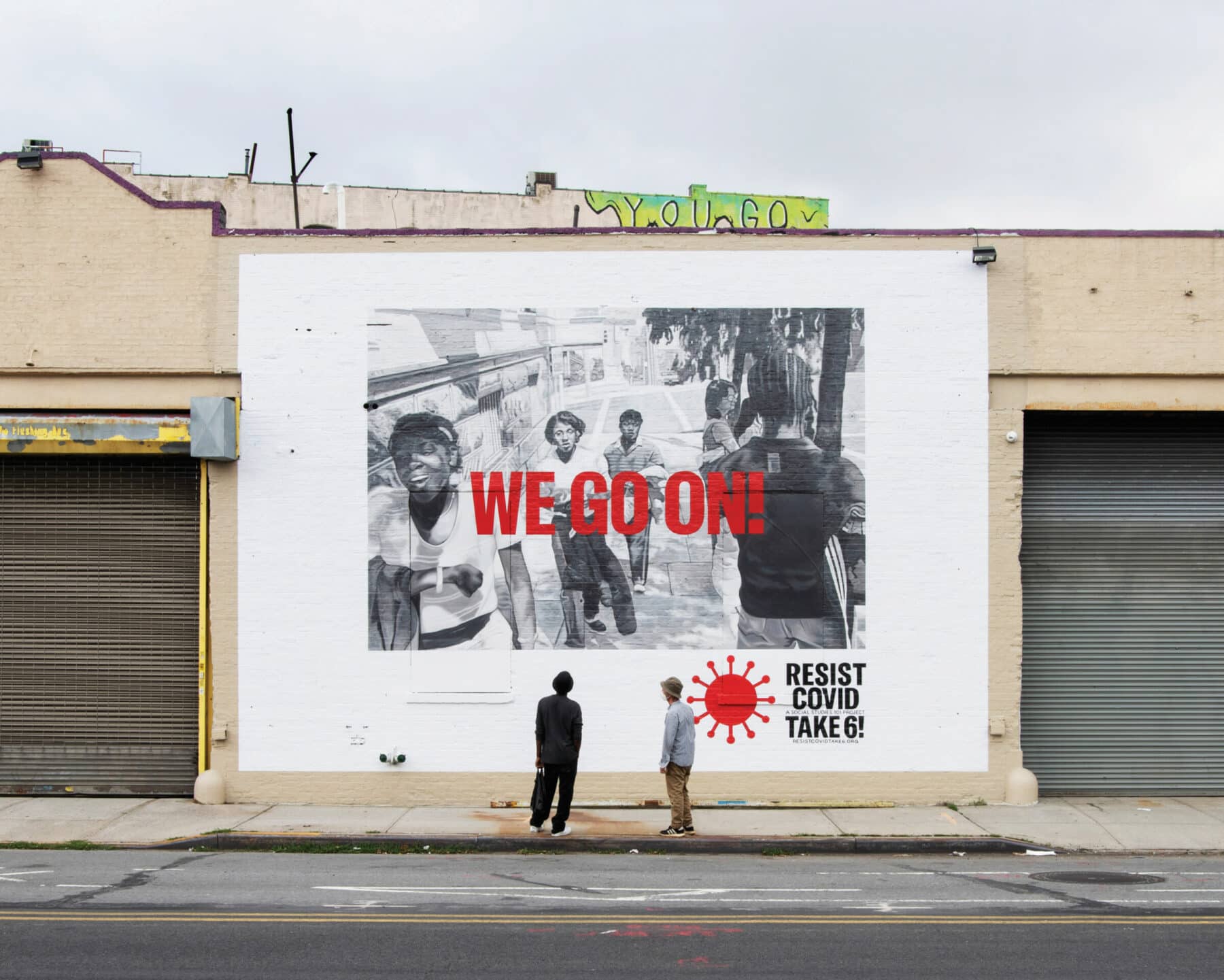
I often share a Zimbabwean proverb about lion hunts: “Until the lion tells its side of the story, the tale of the hunt will always glorify the hunter.” I felt the spirit of that proverb when I observed Carrie Mae Weems’s RESIST COVID | TAKE 6! public awareness campaign. As an artist, Weems has long used her work to investigate family relationships, cultural identity, sexism, class, political systems, and the consequences of power. Through this collection of posters and billboards, initiated in 2020 and created with Pierre Loving and other artists, Weems is very intentional in the way she elevates stories about the COVID-19 pandemic that reflect the ongoing toll of historical and systemic minoritization, or marginalization of those belonging to minority groups, in the United States and globally.
Through images that simultaneously command our attention and cultivate intimacy, Weems clearly aims to demonstrate that there is nothing inherently minor about the lives of those who identify as Black, Indigenous, or people of color.
Unlike anything I have experienced in my lifetime, the pandemic has laid bare the underlying dehumanization of many lives through destructive policies, failed practices, manipulative education, and increasingly corroded quality of life. COVID-19 may have taken a million souls and permanently affected millions more, but it is part of a long history of injustice. In one artwork, Weems’s loud and unapologetic call resonates far beyond the challenges of this pandemic: “THIS MUST BE CHANGED!!!”
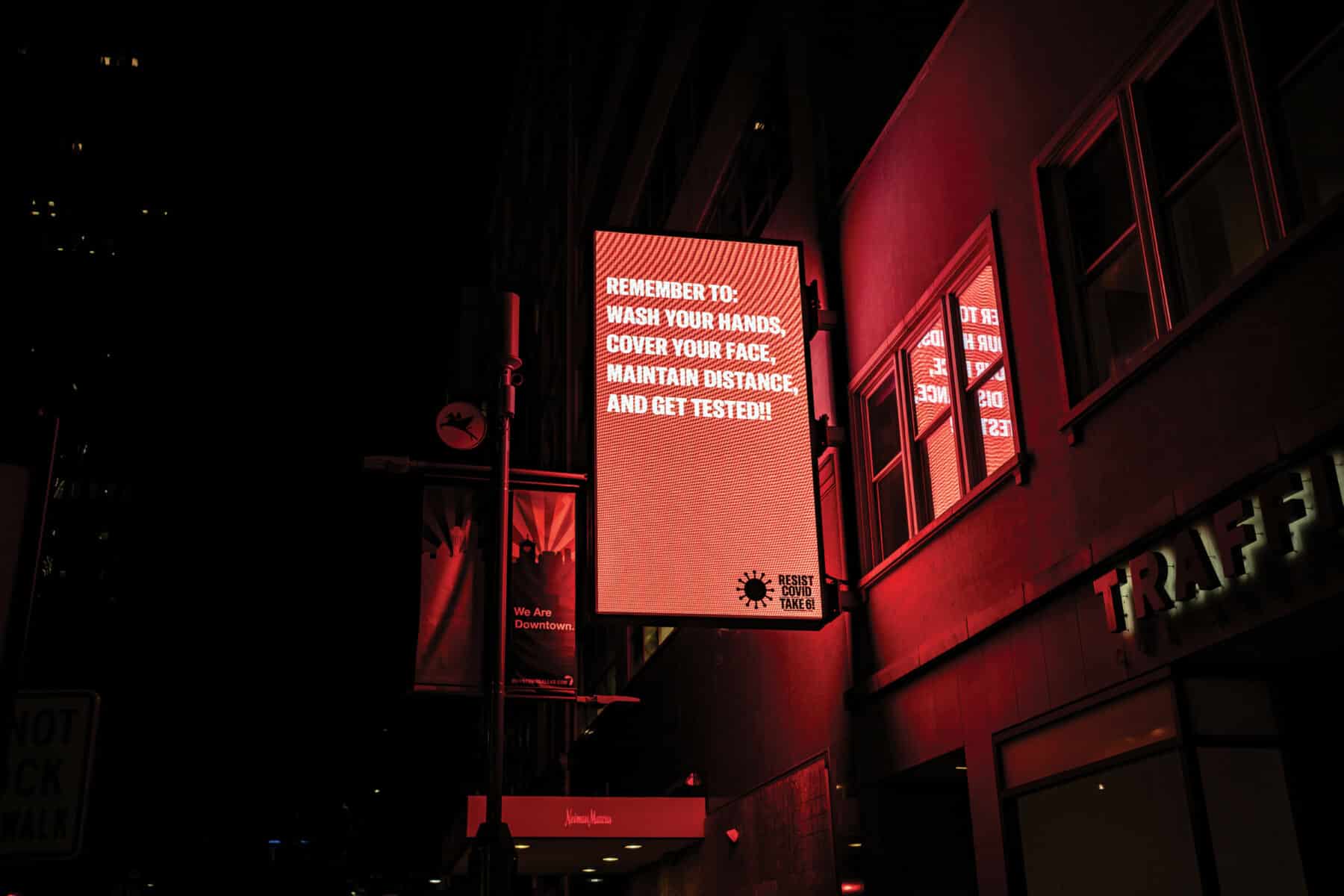
And yet, in her installations, Weems reminds viewers that there remain opportunities to reconnect with our truest selves. Weems’s photo of a smiling woman captures resilient optimism, and the overlaid text, “LIFE IS BEAUTIFUL!!” makes the declaration abundantly clear. Many of us have found beauty during the chaos of COVID-19. But like any muscle, this optimism must be constantly exercised to gain and maintain strength.
COVID-19 may have taken a million souls and permanently affected millions more, but it is part of a long history of injustice.
It is very easy to get swept up in the constant barrage of negativity associated with the pandemic, both organic and manufactured. But, like a mother who comforts a child in pain, Weems lets us know that it will be alright—and we believe it, not just because of the messenger but also because of the message. This is what I love about arts and culture: the immense power that a simple statement can convey, with artists expressing our collective conscience. Weems’s message speaks to the best of humanity during the most challenging of moments, and it reinforces the simple steps—wearing a mask, getting vaccinated, and practicing social distancing—that we can all take. It teaches in the best way, both reaffirming and correcting without minimizing either in the process.
In another work, she encourages gratitude toward people who have weathered some of the most terrible storms during this experience: the farmers, the postal workers, the teachers, the nannies, and other frontline laborers. It should not be lost on anyone that many of the positions she acknowledges are disproportionately filled by people of color, and that these positions are underappreciated relative to their critical roles in preserving the vitality of this country.
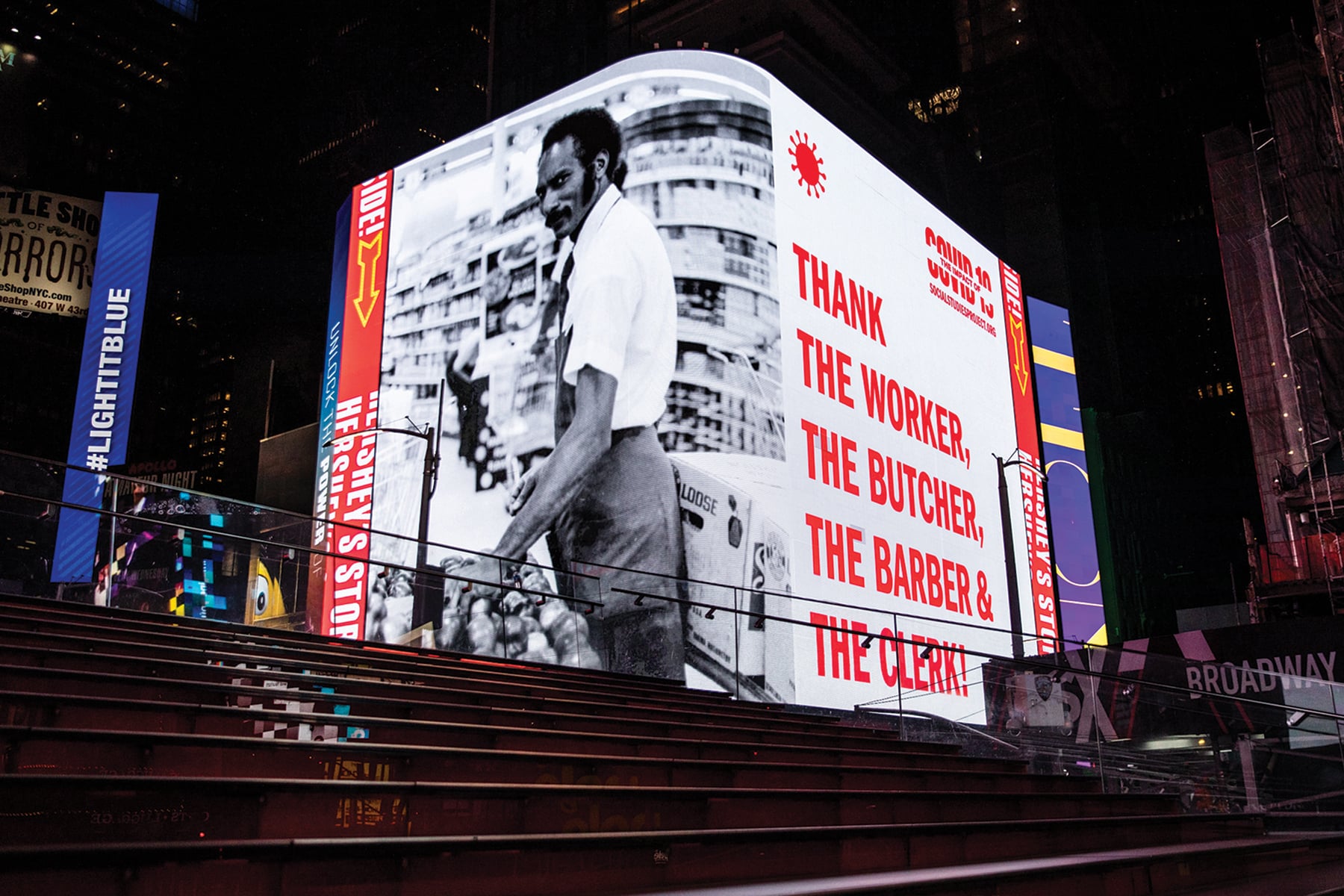
The story of how COVID-19 has created distance, literally and figuratively, is a common narrative we all share. I take comfort in Weems’s confidence that “we’ll hold hands again.” It is another poignant example of what this pandemic has taken away from us—but something we can regain through straightforward public health practices. What greater motivation could there be than to touch and embrace those we love once again? If that opportunity remains, why would we not do everything to seize it?
Weems’s message speaks to the best of humanity during the most challenging of moments.
Context is key to any effective effort, be it in public health or arts and culture, because it cultivates a deeper level of understanding. Here, Weems’s use of buttons and church fans as conduits for her messages demonstrates the importance of social context, especially for Black people. The unique cultural meanings of the fans and buttons provide a moment for grounding and remembrance of the value of space, connection with faith, and cultivation of perspective. For those involved in health communication, these artifacts demonstrate a truth: if people cannot see themselves in the story, then neither the story nor its message will resonate. Relevance matters.
Collectively, we have experienced so much loss in the past two years. The abrupt endings of so many stories make us reflect on our own, and how we want it to be told. What COVID-19 has reinforced for me is that most people want the assurance that they were acknowledged, appreciated, respected, understood, and loved. That’s it. RESIST COVID | TAKE 6! makes direct allusions to the realities of the dangerous circumstances surrounding us, the solutions that lie before us, as well as the reasons why we should act—community, respect, faith, holding hands, and connection with humanity within us and among us.
David Fakunle is a visiting lecturer at the University of Florida Center for Arts in Medicine and associate faculty in the mental health department at the Johns Hopkins Bloomberg School of Public Health.

